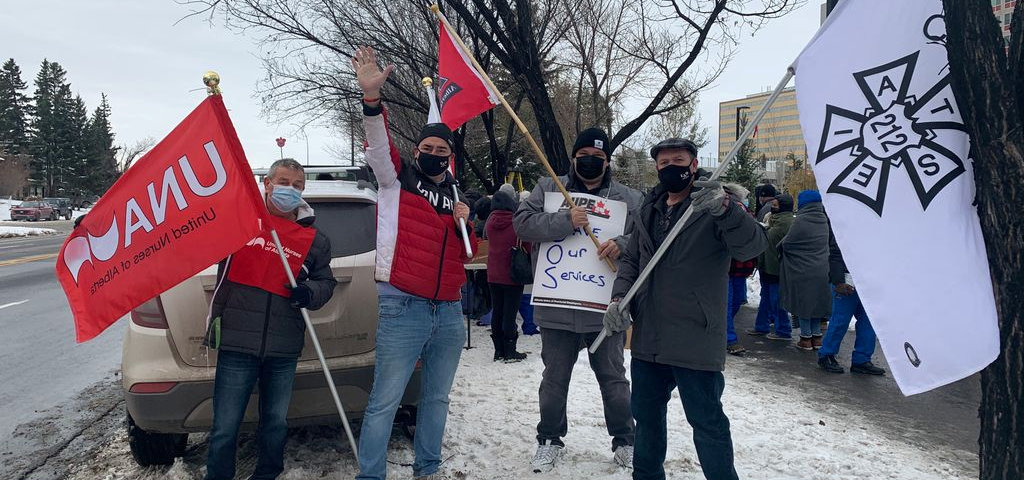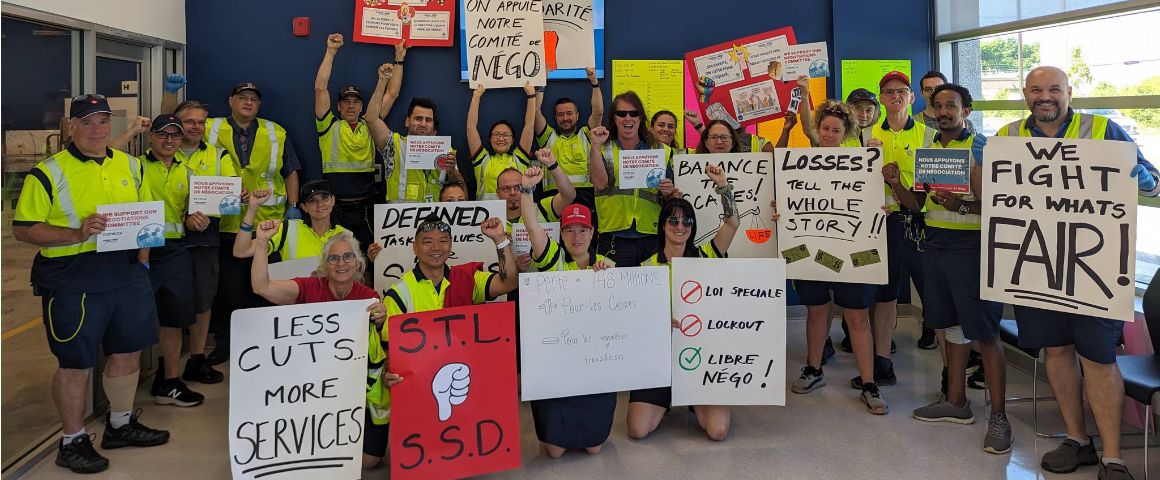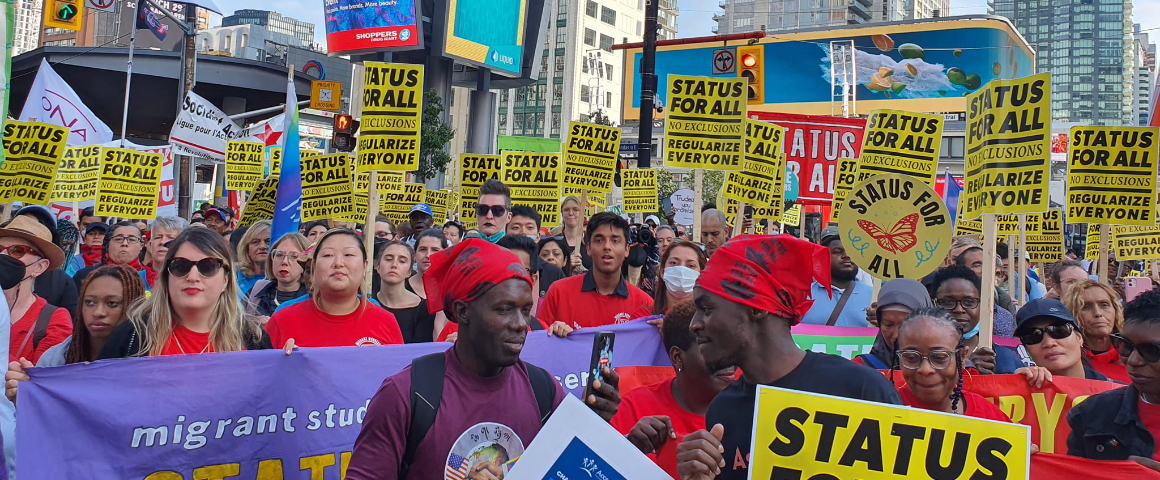Hospital workers in Alberta have been ruled back to work by a court injunction, after an impressive wildcat strike at hospitals across the province. The militant action, which began on October 26, is in response to Health Minister Tyler Shandro’s October 13 announcement that the government will cut a massive 11,000 jobs for health services and support workers.
As Alberta Union of Provincial Employees (AUPE) president Guy Smith said, “Across this province, working people are rising up against Jason Kenney’s job-killing policies and are joining the fight in solidarity.” Smith called for more workers to join the fight. “All Albertans are being targeted by this government. If you are a public or private-sector worker, a parent, a student, a teacher, someone with a handicap or disabilities, you are all under attack. This is your fight, too.”
The AUPE has quickly received solidarity from other unions in Alberta, many of whom helped bolster picket lines at hospitals across the province.
This walkout is reminiscent of a similar struggle 25 years ago. In 1995, laundry workers at Foothills Hospital in Calgary went on a week-long wildcat strike against then premier Ralph Klein’s plans to contract out their jobs. That action received massive support from other unions and the public and forced the government to back down on some of its privatization plans.
Now, as then, a right-wing government is using a multi-pronged strategy in a wide-ranging “slash and burn” effort to implement privatization, and to weaken labour and democratic rights. Speaking to People’s Voice, Alberta Communist Party leader Naomi Rankin noted that Alberta has the lowest support for health privatization in the entire country, something which illustrates the stakes at play. “Working people in Alberta have a long perspective on privatization, based on a prolonged fight to defend public healthcare. In that regard, the UCP are risking electoral defeat to implement this strategy and this shows how central privatization is for them.”
Kenney has systematically attacked the health system in an effort to completely dismantle it. Soon after getting elected, his government unilaterally overruled the bargaining system with doctors and triggered widespread resignations and closures of doctors’ offices across Alberta. The UCP then turned on nurses, targeting them with pay cuts and mass layoffs. Now, the government’s sights are focused on health support workers – moving to privatize 11,000 jobs of cleaners, laundry and food service workers. It’s a bitter pill for people who have spent the past 7 months risking their lives to provide health services during the COVID-19 pandemic.
One of the key differences between this fight and the one in 1995, according to Rankin, is the labour movement’s preparation for Kenney’s attacks. “With Klein, the trade unions were caught off guard. But this time, they have been actively opposing the United Conservatives and the cuts since Day 1.”
In many ways, this struggle is about much more than healthcare. Rankin says the UCP has launched “a triple attack” against working people throughout Alberta. “First, there is the campaign of deep cuts and massive privatization. This is particularly aggressive in the context of the present pandemic and economic crisis. Second, there is the attack on trade unions’ organizational and political rights. Bill 32 requires unions to secure explicit support from each member before they can spend any money on organizing, education and lobbying, public and political advocacy, and even working with allies or supporting charities. The third attack is against political activism in general. Bill 1 designates infrastructure like railways, highways and pipelines as critical and mandates outrageous penalties – up to $25,000 and 6 months in jail for a first offence – for trespassing or interfering with those operations. It’s a clear attack on peaceful protesters, especially Indigenous people and environmental activists.
“We’ve seen nothing like this since the War Measures Act, this attempt to criminalize political activity. It’s a very difficult situation for workers and unions, to chart a fightback strategy through a situation like this. In addition to defending healthcare, the walkouts we are seeing now are an important element of resistance to this triple attack.”
Despite the injunction, the wildcats clearly will not be the last fight between workers and Kenney. “The outcome, as always, will depend on the degree of militancy, unity and solidarity of the working people of Alberta,” says Rankin. “There’s a reason we say, ‘The longer the line, the shorter the strike!’”
[Photo of picket line at Foothills Medical Centre, Calgary. Credit: IATSE Twitter]
[hr gap=”10″]
Support socialist media!
If you found this article useful, please consider donating to People’s Voice.
We are 100% reader-supported, with no corporate or government funding.




